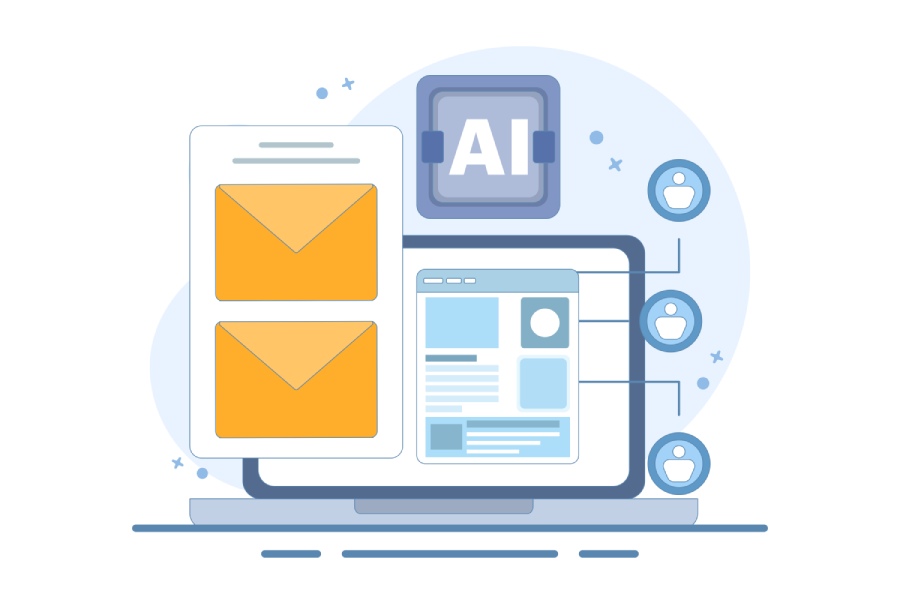How To Leverage AI For Personalized Email Campaigns That Convert
Personalized email campaigns are no longer just a marketing trend—they’re a necessity for brands looking to connect with modern consumers. With AI, businesses can analyze customer behavior, preferences, and purchase history to deliver highly targeted messages. Unlike generic blasts, AI-driven personalization ensures every subscriber feels understood and valued. This results in higher open rates, stronger engagement, and improved conversion. Leveraging AI in email marketing is the key to turning data into meaningful customer relationships.
Understanding AI and Its Role in Email Marketing
Artificial intelligence (AI) has revolutionized the landscape of email marketing by enabling businesses to deliver highly targeted marketing messages with unprecedented accuracy. AI integrates various technologies such as machine learning, natural language processing, and predictive analytics to optimize email campaigns at every stage—from crafting subject lines to timing automated emails for optimal engagement.
Leading marketing automation platforms like HubSpot, Salesforce Marketing Cloud, Mailchimp, and ActiveCampaign have incorporated AI-driven features that empower marketers to harness the power of data-driven marketing for better customer engagement and conversion rate optimization.
In essence, AI transforms traditional email marketing efforts into sophisticated, dynamic systems. For example, machine learning algorithms analyze recipients’ past interactions, demographic data, and behavioral patterns to enhance customer segmentation and user profiling. This allows marketers to tailor their message delivery not only to broad personas but to individual preferences, thereby improving email deliverability and increasing the overall response rate.
Furthermore, AI enables real-time personalization, adjusting content dynamically based on user behavior even moments before an email is opened. This level of precision is unattainable through manual segmentation and makes automated email campaigns far more relevant and engaging.
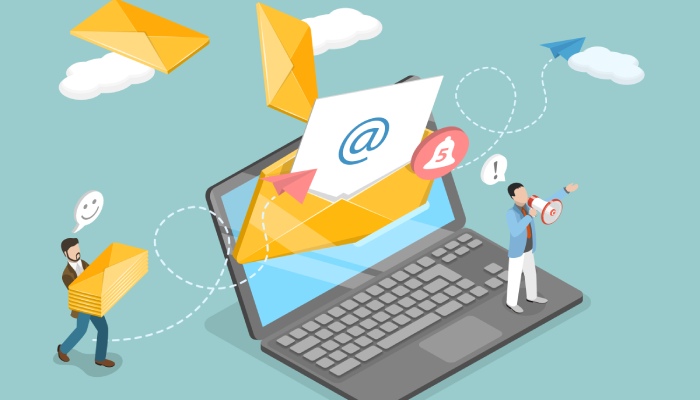
The Importance of Personalization in Email Campaigns
- Personalization is a cornerstone of successful email campaigns, driving customer retention and lead nurturing.
- It goes beyond addressing recipients by name, involving tailored content and dynamic messaging based on interests, purchase history, and interaction patterns.
- This approach boosts click-through rates (CTR) and increases conversion rates.
- AI-powered tools like Phrasee and Persado use natural language processing to optimize subject lines, maximizing open rates by appealing to specific customer segments.
- Behavioral targeting ensures users receive content aligned with their actions, such as browsing products or abandoning carts.
- Email list segmentation categorizes customers by demographics, purchase behavior, and engagement levels.
- AI enhances segmentation by refining groups in real time, enabling drip campaigns and automated emails that feel more relevant and drive ongoing engagement.
How AI Enhances Personalization Beyond Traditional Methods
Traditional email personalization typically relies on static data fields or basic segmentation, which limits the scope and efficacy of targeted marketing. AI transcends these limitations by employing machine learning to predict user behavior, anticipate needs, and deliver hyper-personalized experiences at scale.
Predictive analytics plays a vital role in identifying high-value customers and the optimal timing for email sends, thus improving email deliverability and customer engagement. Leveraging platforms like Marketo, Adobe Campaign, Iterable, and Emarsys, marketers can implement sophisticated automation workflows that use AI to respond dynamically to user signals, adjusting email copy, offers, and content blocks using dynamic content technology.
Natural language processing enables automated emails to replicate human-like communication styles, tailoring tone and style based on customer preferences. This linguistic sophistication boosts trust and opens the door for more meaningful interactions, making emails feel less like mass mailings and more like personalized conversations.
A/B testing also benefits from AI’s analytical might by rapidly assessing multiple variables—such as subject lines, content variations, and send times—to identify what drives the highest engagement and conversions. Platforms like Campaign Monitor and Constant Contact use AI to automate and optimize email subject lines, content, and layouts, further enhancing personalization efforts based on real-world data.
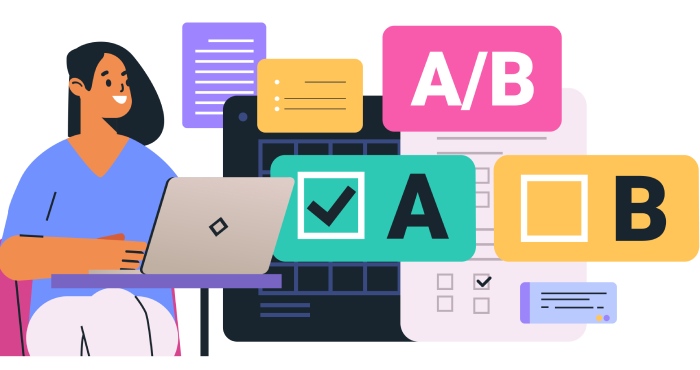
Gathering and Managing Customer Data for AI Personalization
Effective AI-driven personalization hinges on comprehensive and well-managed customer data. Data sources may include purchase history, website interactions, email engagement metrics, social media activity, and demographic information. To manage and leverage this data effectively, marketers use customer relationship management (CRM) and email marketing platforms integrated with AI, like Zoho Campaigns, Drip, Sendinblue, and GetResponse.
User profiling and customer segmentation are essential steps that categorize data into actionable insights. Data enrichment tools like Clearbit can augment customer profiles with additional external information, enhancing segmentation accuracy. These profiles feed into AI algorithms that orchestrate email automation sequences, such as drip campaigns and automated emails, tailored precisely to each recipient’s preferences and behaviors.
Strict attention to email deliverability is critical during data collection—clean email lists and regular hygiene processes ensure that messages reach inboxes rather than spam folders. Platforms such as SendGrid, Mailjet, and Pepipost provide infrastructure optimized for deliverability, which complements AI-driven email optimization strategies.
Additionally, marketing automation tools like Autopilot and CleverTap provide seamless integration of behavioral targeting data, allowing marketers to track customer journeys comprehensively and initiate personalized communication triggered by real-time behaviors. This synergy between data collection and AI personalization dramatically increases response rates, allowing for continuous improvement in retention marketing and lead nurturing efforts.
Statistical Data:
• Personalized email campaigns deliver 6x higher transaction rates than non-personalized emails
• Automated emails generate 320% more revenue than one-time email blasts
• AI-driven subject line optimization can boost open rates by up to 50%
• Segmented and targeted emails lead to 14.31% higher open rates and 100.95% higher click-through rates compared to non-segmented campaigns
• Predictive analytics improve lead nurturing effectiveness by 25%
• Behavioral targeting can increase conversion rates by 30%

Segmenting Your Audience Using AI-driven Insights
Effective customer segmentation forms the backbone of any successful email marketing strategy. Leveraging artificial intelligence (AI) and machine learning algorithms enables marketers to dive deeper into user profiling and behavioral targeting, uncovering hidden patterns across a broad set of data points.
Tools like Salesforce Marketing Cloud, HubSpot, and Marketo integrate predictive analytics to analyze customer attributes such as purchase history, engagement frequency, and browsing behavior, allowing for precise email list segmentation.
This AI-driven segmentation extends beyond basic demographics, incorporating dynamic content triggers based on real-time personalization signals. For instance, platforms like ActiveCampaign and Iterable utilize AI to automatically cluster users into micro-segments that respond differently to various touchpoints, enabling highly targeted marketing campaigns.
Combining these insights with marketing automation systems generates automated emails tailored to specific customer journeys, increasing response rates and fostering improved lead nurturing.
Advanced segmentation powered by AI also bolsters retention marketing by identifying at-risk customers and delivering personalized drip campaigns designed to re-engage them. Companies like Emarsys and Braze specialize in integrating machine learning models to continually refine segmentation accuracy, ensuring ongoing optimization in customer engagement and email deliverability.
Crafting Personalized Email Content with AI
Creating email campaigns that resonate requires more than just segmenting the audience; it demands crafting personalized content that speaks directly to individual needs and preferences. Natural language processing (NLP) and machine learning have revolutionized how marketers generate customized email copy and visuals that adapt dynamically based on user behavior.
Platforms such as Phrasee and Persado utilize NLP to create optimized email subject lines and body text that appeal emotionally and cognitively to recipients, significantly boosting open rates and click-through rates (CTR). Beyond subject line optimization, AI-driven tools embedded in software like Campaign Monitor and Constant Contact offer dynamic content generation, where promotional messages update automatically depending on different user segments or even time zones.
Moreover, user profiling integrated with AI aids in personalization by combining customers’ past interactions and predictive analytics to tailor newsletters, product recommendations, and promotional offers — a strategy thoroughly implemented by Oracle Eloqua and Adobe Campaign. Personalized content enhances relevance, driving better conversion rate optimization and customer engagement.
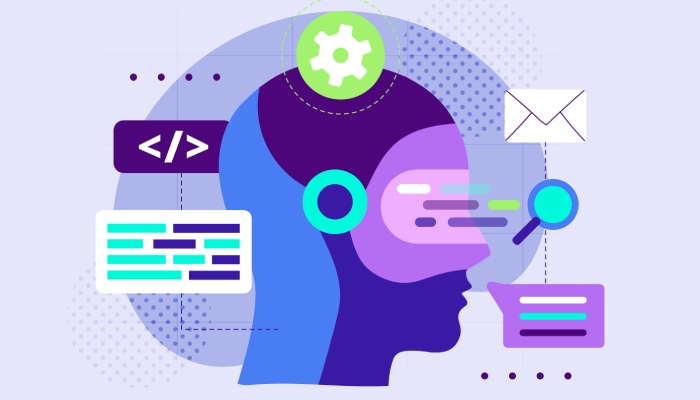
Optimizing Subject Lines and Email Copy Through AI
The email subject line serves as the gateway to open rates and overall campaign success, and intelligent optimization here is critical. AI-powered A/B testing platforms, including HubSpot, Mailchimp, and GetResponse, utilize machine learning to test various subject line iterations on small audience subsets to predict which will perform best before rolling out to the full list.
Automated email systems embedded with email optimization algorithms often analyze historical campaign data, factoring in customer segmentation and preferences to continuously refine subject line phrasing and tone. Phrases and Persado stand out with their AI-generated content, applying linguistic insights to craft compelling calls to action that improve both open rates and response rates.
Additionally, AI-driven email copy optimization doesn’t stop at subject lines. Clearbit and Sendinblue offer features that analyze email body content for clarity, sentiment, and relevance, suggesting improvements that align with brand voice and customer expectations, thus maximizing conversion rate optimization.
Automating Email Send Times for Maximum Engagement Using AI
Timing is a crucial element that influences customer engagement and email deliverability in email marketing. Machine learning models analyze user interaction patterns across thousands of data points to determine the optimal send time for each individual recipient. This approach, often referred to as send-time optimization, is incorporated into platforms like SendGrid, Moosend, and Sendlane.
For example, tools associated with marketing automation suites such as ActiveCampaign and Autopilot schedule automated emails based on when users are most likely to open and interact with messages, enhancing the click-through rate and overall campaign success. By employing AI to automate send times, marketers effectively increase the relevancy and impact of drip campaigns and targeted marketing efforts.
Furthermore, real-time personalization mechanisms adjust send times dynamically, responding to user activity signals to minimize spam complaints and improve inbox placement — a critical factor in maintaining high email deliverability.
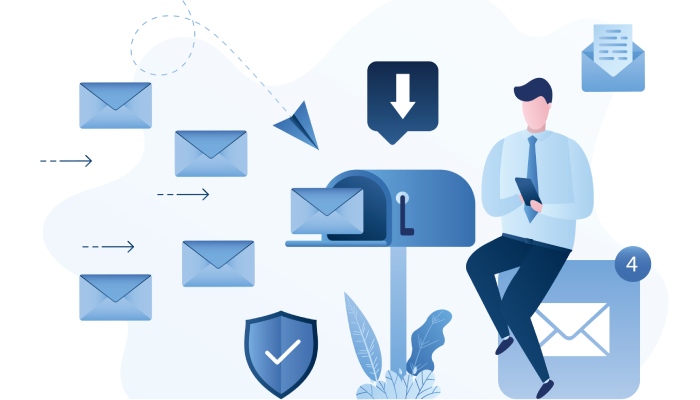
Using AI to Predict Customer Behavior and Preferences
Predictive analytics powered by AI and machine learning allow marketers to forecast customer actions, preferences, and lifetime value with increasing accuracy. Platforms like Braze, Iterable, and Oracle Eloqua leverage vast data repositories combined with behavioral targeting to anticipate product interests, potential churn, or times of increased purchasing intent.
By integrating these predictive insights into email automation workflows, marketers can design highly relevant, personalized drip campaigns that nurture leads through customized content delivery sequences. These predictions also facilitate effective retention marketing, signaling when to deploy win-back campaigns or exclusive offers.
Advanced AI algorithms further support data-driven marketing by continuously learning from campaign performance metrics such as response rate, click-through rate, and conversion rate optimization to refine future email campaigns. For instance, Clearbit and CleverTap provide valuable data enrichment and user profiling capabilities, enabling granular segmentation and personalized content that directly corresponds to predicted customer needs.
Incorporating AI predictions transforms email marketing from a reactive to a proactive strategy, driving higher engagement and fostering deeper relationships with recipients through scalable personalization and marketing automation systems.
Integrating AI-powered Tools with Your Email Marketing Platform
Harnessing artificial intelligence to enhance email marketing requires seamless integration between AI-powered tools and leading email marketing platforms such as HubSpot, Mailchimp, Salesforce Marketing Cloud, and ActiveCampaign. These platforms enable marketers to harness machine learning algorithms for customer segmentation and behavioral targeting, making email campaigns more personalized and effective.
Using AI-driven platforms like Marketo or Iterable, marketers can automate the creation and delivery of dynamic content based on user profiling and real-time personalization. For instance, natural language processing (NLP) technologies integrated into Phrasee or Persado optimize email subject line construction through email subject line optimization, significantly boosting email deliverability and response rates.
When paired with marketing automation tools like Adobe Campaign or Oracle Eloqua, AI enhances lead nurturing and retention marketing by delivering predictive analytics that forecast customer behavior and preferences.
Furthermore, email automation platforms such as Sendinblue and Moosend leverage AI to execute drip campaigns and trigger automated emails based on user actions, thereby increasing customer engagement and click-through rates. Integrating Clearbit’s data enrichment can further refine email list segmentation, ensuring targeted marketing efforts reach the right audience, improving conversion rate optimization outcomes.
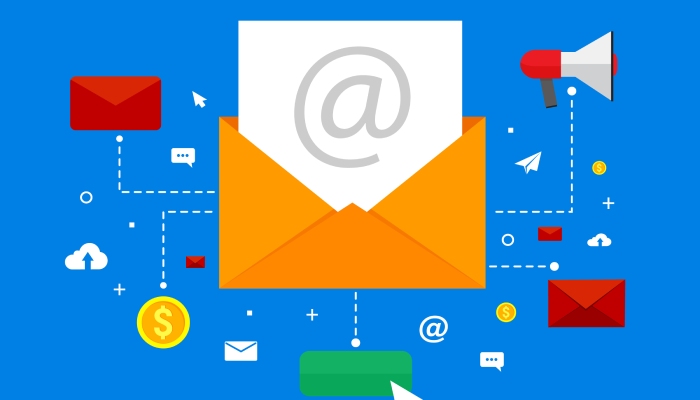
Testing and Iterating Campaigns with AI Analytics
AI analytics platforms empower marketers to conduct sophisticated A/B testing by analyzing large volumes of data from email campaigns. Tools like Campaign Monitor and Emarsys utilize machine learning to assess the effectiveness of personalized content and subject lines, feeding insights back into the system for continual email optimization. This iterative process supports data-driven marketing strategies that amplify customer engagement and maximize ROI.
Predictive analytics play a critical role in response rate enhancement by identifying which elements of email campaigns resonate most with different customer segments. Marketing automation tools such as Braze and Drip can evaluate engagement metrics in real-time, enabling marketers to fine-tune email content dynamically. This ongoing optimization, powered by user profiling and behavioral targeting, elevates both click-through rate and conversion rate optimization.
By integrating AI insights from platforms like SendGrid or Zoho Campaigns, marketers can improve email deliverability and timing, reducing bounce rates and enhancing overall campaign effectiveness. The ability to perform multi-variate testing with AI-driven insights propels marketers beyond traditional A/B testing, uncovering nuanced patterns that inform future email subject line optimization and email list segmentation tactics.
Addressing Privacy and Ethical Considerations in AI Email Marketing
While AI enriches email marketing personalization, it also raises significant privacy and ethical concerns. Marketers using platforms such as Constant Contact and GetResponse need to ensure that their data-driven marketing practices comply with privacy regulations like GDPR and CCPA. Transparency in collecting and processing customer data for AI-based user profiling and behavioral targeting is essential to maintaining consumer trust.
Ethical AI deployment also requires responsible use of predictive analytics and natural language processing to avoid manipulative or invasive marketing tactics. Privacy-centric entities like Sendlane and Pepipost promote opt-in consent frameworks and anonymized data strategies to reconcile personalization with privacy rights. Furthermore, marketers must balance real-time personalization with ethical guidelines to prevent manipulative dynamic content that could harm customer relationships.
Marketing automation companies such as Autopilot and CleverTap stress the importance of ethical AI by auditing algorithms regularly to eliminate biases in customer segmentation and lead nurturing campaigns. By maintaining this integrity, brands foster long-term loyalty and compliance while driving retention marketing success.
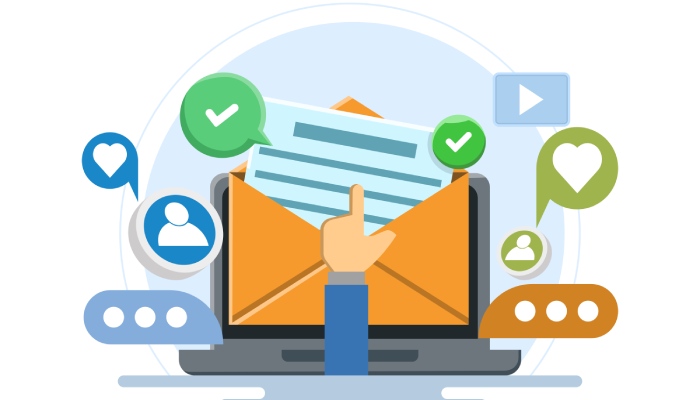
Case Studies: Successful AI-driven Personalized Email Campaigns
Numerous organizations have demonstrated exceptional outcomes by employing AI in personalized email marketing. For example, HubSpot integrated machine learning-driven email list segmentation and automated emails paired with Phrasee’s AI-powered subject line optimization to increase open rates by 35% and click-through rates by over 25%.
Similarly, ActiveCampaign’s use of behavioral targeting combined with Drip’s marketing automation capabilities drove a 20% lift in conversion rate optimization for an ecommerce retailer’s retention marketing efforts.
Salesforce Marketing Cloud’s predictive analytics enabled a global brand to deliver real-time personalization at scale, leading to a 15% boost in response rate through personalized content and dynamic content experiences.
Adobe Campaign’s integration with Clearbit improved user profiling accuracy, allowing email campaigns to be finely tuned for targeted marketing and lead nurturing, resulting in a 10% increase in email deliverability and a notable rise in customer engagement metrics.
Campaign Monitor’s AI-powered A/B testing facilitated a telecommunications firm in optimizing email subject lines and content sequences, which yielded a 22% increase in conversion rates. These case studies underscore how combining advanced AI tools with email marketing platforms fosters highly personalized customer journeys and measurable business growth.
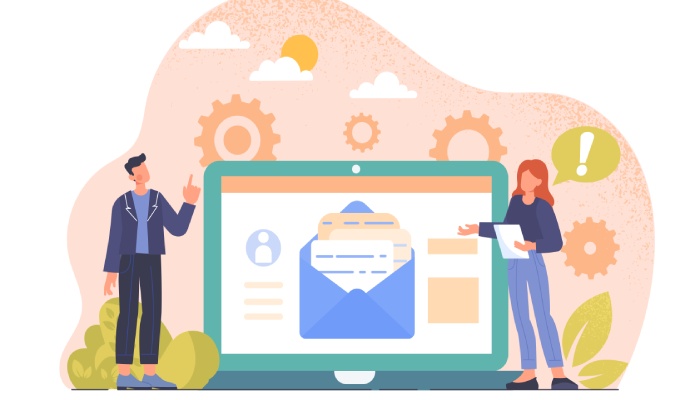
Future Trends in AI and Personalized Email Marketing
Looking forward, the role of artificial intelligence in email marketing continues to evolve toward more sophisticated, data-centric automation and customer experiences. Advances in natural language processing and generative AI will fuel increasingly dynamic content creation and hyper-personalized communication that adapts instantly to user interactions and context.
Marketing automation platforms like Iterable and Emarsys are investing heavily in real-time personalization, delivering predictive analytics that forecast not just customer behaviors but emotional responses and intent. The convergence of AI-driven email automation with cross-channel marketing orchestration, powered by platforms such as Oracle Eloqua and Braze, will redefine targeted marketing as seamless omnichannel experiences.
Additionally, AI-enabled email optimization will expand its scope through advanced A/B testing methodologies, such as multi-variate and multi-armed bandit testing, leading to higher efficiency in conversion rate optimization and enhanced retention marketing. Platforms like Nureply are leveraging these innovations to help marketers achieve better personalization and targeting.
As ethical AI principles gain prominence, transparency and privacy frameworks will become embedded into email marketing strategies, ensuring responsible data use while maximizing customer engagement and response rate.
The future of AI-based email marketing will be characterized by smart drip campaigns, evolving machine learning models, and greater integration across platforms like SendPulse, Mailjet, and ConvertKit, collectively fostering smarter, more relevant, and user-centric email communications that drive sustainable growth.

